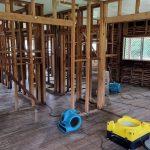When it comes to installing drywall, understanding various techniques and strategies is crucial for achieving a professional finish. Whether you are upgrading a room or replacing old drywall, having the right knowledge can significantly impact the quality and longevity of your project. Before you decide to hire a handyman, there are several essential factors you need to consider. These include verifying the handyman’s licensing, comprehending the cost of drywall installation, and ensuring that the professional you choose is qualified to meet your specific needs.
Step-by-Step Guide to Securing a Handyman’s License for Drywall Installation
If you’re aiming to excel in the drywall installation industry, securing a handyman’s license is a vital step in your career journey. While not every state mandates this certification, many do require it to ensure compliance with local building regulations and safety standards. To find out whether you need a handyman’s license, begin by conducting thorough research into the specific licensing requirements for your state. This knowledge will help you navigate the legal landscape of your profession.
For minor tasks such as painting or small appliance repairs, most states do not require a handyman’s license. However, if your ambitions include taking on larger projects, you may need to obtain a separate license for each specific task, depending on local laws and regulations. Understanding these requirements is crucial for compliance and professional integrity.
Beyond obtaining a handyman’s license, it’s also essential to secure insurance. Having a contractor’s liability and property damage insurance policy is not just a legal formality; it protects you in case of accidents or damages occurring during the job. If you plan to hire employees, workers’ compensation insurance is also necessary. Meticulously reviewing construction plans will allow you to estimate both material and labor costs accurately. This preparation enables you to submit competitive bids while maintaining high standards of quality.
When applying for a handyman’s license specifically for drywall installation, there are certain criteria that applicants must fulfill. For example, in Georgia, candidates are required to pass examinations covering trade, business, and law. Furthermore, having a minimum of two years of hands-on experience as a handyman is often a prerequisite, in addition to showing proof of general liability and workers’ compensation insurance. If you are engaged in projects that exceed $1,000 or require construction permits in various jurisdictions, such as in Hawaii, obtaining a general contractor’s license becomes imperative.
While a handyman’s license for drywall installation may not be strictly necessary in all states, it is highly advisable if you plan to undertake more extensive work that goes beyond simple repairs and installations. Typically, states require proof of liability insurance and a handyman’s license to protect against potential legal issues and property damage claims, underscoring the importance of being properly credentialed.
To thrive as a handyman, it’s crucial to familiarize yourself with the diverse standards and licensing requirements that vary from state to state. Local regulations often exhibit significant differences regarding handyman licenses, making thorough research essential for anyone looking to manage various projects efficiently and effectively.
Comprehensive Overview of Drywall Installation Costs: Factors That Affect Pricing
The total cost of drywall installation can be influenced by a myriad of factors, including the scope of the project and the specific materials needed. For instance, if you are dealing with larger holes, a complete drywall replacement may be necessary, which can considerably escalate the overall expense. Additionally, the quantity of materials required will directly affect both material and labor costs, making it critical to assess the job’s size accurately. A skilled handyman can often complete smaller tasks within a few hours, making them a cost-effective option for quick repairs.
Conversely, major drywall repairs that involve extensive holes or significant water damage will require more time, effort, and expertise. In severe cases, entire sections of drywall may need to be removed and replaced, which can significantly increase the overall costs of the project. This situation often calls for a professional with specialized skills, thereby leading to higher expenses for the homeowner.
Proper planning and preparation are critical components of successful drywall installation. A comprehensive list of required supplies and tools is essential, and the overall cost will be determined by the size of the area and the complexity of the job at hand. Handymen often require the assistance of additional workers, especially for larger projects that demand more manpower. Furthermore, installation costs can fluctuate based on the necessity for prep work and cleanup, as well as the complexity of ceiling designs and the number of corners involved, which can contribute to increased material and labor expenses.
The type of drywall selected for the project plays a significant role in determining the total cost of installation. Standard drywall is commonly utilized in most commercial constructions and is available in various widths and thicknesses. Choosing the right type can affect both durability and aesthetics in the long run.
For larger tasks, costs can accumulate quickly, making it essential to budget accordingly. The overall expense largely hinges on the project’s size and intricacy; smaller jobs may have a higher cost per square foot, yet drywall remains a more economical choice compared to other construction materials.
While hiring a handyman might seem like a cost-effective solution, enlisting the services of a drywall specialist can also provide significant benefits. Specialists possess the advanced skills necessary for tasks ranging from removing popcorn ceilings to constructing drop ceilings. Their expertise in taping joints and applying textures can ensure a higher standard of workmanship. Additionally, they are adept at handling complications such as water damage, hole repairs, and more intricate texturing tasks.
When selecting a drywall contractor, it is imperative to obtain a detailed contract that clearly outlines the project scope and associated costs. The contract should specify the number of drywall sheets required, the type of material to be used, and a comprehensive breakdown of labor and material costs to avoid misunderstandings and ensure transparency in the process.
Key Considerations for Selecting the Ideal Handyman for Your Drywall Projects
Before making a decision to hire a handyman for drywall installation, asking several critical questions is essential to ensure a well-informed choice. Start by inquiring about the estimated timeline for the completion of the project. Even the most skilled drywall installers can have varying schedules, so understanding the timeframe is crucial to avoid potential dissatisfaction upon project completion.
It is advisable to interview at least three potential handymen to make a well-rounded decision. During these interviews, ask about their experience and request references from previous clients. Ensuring that the handyman you select possesses the required skills and tools for the job is essential to achieve the best possible outcome. Additionally, confirm that their services align with your budget, ensuring there are no surprises later.
Next, carefully evaluate the potential costs involved in drywall installation. By comparing bids from various contractors, you can gain valuable insights into the market rates for your specific project requirements. A reputable contractor should provide a detailed cost breakdown that encompasses all materials, supplies, and any additional expenses that may arise.
Verifying credentials and insurance is another critical step before hiring a handyman. Obtaining a written contract along with references can provide you with peace of mind and help confirm that the handyman is indeed the right fit for your project. Requesting examples of their previous work will further bolster your confidence in your choice.
A competent handyman should possess a diverse skill set, enabling them to handle a variety of tasks with ease. For example, if your ceiling has a hole that requires drywall installation, a suitable handyman should be equipped to manage that task. They should also be able to assist with related projects, such as installing new light fixtures or repairing popcorn texturing.
Thoroughly checking the handyman’s experience and references before making a commitment is vital. An experienced handyman is more likely to execute the job competently, increasing the chances of a successful project outcome. It’s prudent to avoid contractors who employ high-pressure sales tactics or exhibit inflated advertising budgets, as these often signal potential issues.
Keeping your budget in mind is essential when hiring a handyman for drywall installation. An efficient handyman should be able to complete the job in a timely manner while treating your property with respect. They should also prioritize cleanliness, ensuring that the workspace is tidy and organized once the project concludes.
A handyman familiar with the complexities of plumbing and electrical systems is an excellent choice for addressing leaks or handling related tasks. They can also assist with a wide range of projects, including hole repairs, light painting, deck repairs, and drywall installations.
Finding a trustworthy handyman in your area is entirely achievable. Explore online reviews and seek recommendations from friends and family to gather insights. Additionally, don’t hesitate to ask your handyman for client references to verify their reputation and capabilities, ensuring you make a wise investment in your home improvement project.
The post How Does a Handyman Do Drywall Installation? appeared first on https://gqcentral.co.uk
The Article Drywall Installation Techniques by a Handyman Was Found On https://limitsofstrategy.com




Your insights on the importance of a handyman’s license for drywall installation are spot on! I’ve always believed that proper certification not only ensures compliance with local codes but also gives clients peace of mind knowing they’re working with a professional. In my experience, I’ve seen some DIY projects go awry when proper techniques weren’t applied, leading to costly fixes down the line.
You bring up a crucial point about the value of a handyman’s license and how it connects to client confidence. It’s interesting to reflect on how much a license embodies the training and commitment to craftsmanship that often gets overlooked in DIY circles. When people opt for a DIY approach, they often underestimate the nuances behind proper techniques, which can lead to situations like you mentioned—those unexpected and sometimes expensive repercussions.
I found your insights on hiring a licensed handyman really valuable. It’s interesting how often people underestimate the importance of checking credentials before starting a home renovation project. I remember when I tried my hand at drywall installation myself—let’s just say it didn’t go as smoothly as I hoped! Hiring a professional not only ensured a better finish but also saved me time and potential headaches later on.
It’s so true that checking credentials can really make a difference in a project. I think a lot of people see home improvements as DIY opportunities and don’t realize the nuances involved. Your experience with drywall installation is a familiar story for many. I’ve tried my hand at various projects, and it’s became clear that the learning curve can be steep.
It’s so true—many folks think tackling DIY projects is the way to go until they face the reality of it all. Your drywall experience is a perfect example; it can be a lot trickier than it looks! A professional not only has the right skills but also the tools and experience to avoid those little pitfalls that can turn a simple job into a major headache. Plus, a licensed handyman often knows the ins and outs of local building codes, which can save you from future issues. It’s definitely worth considering the value of someone who does this every day. Have you thought about any other projects you’d want to hand over to a pro in the future?